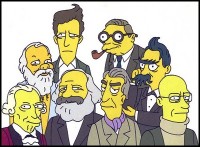The truth, the whole truth and … wait, how many truths are there?

Calling something a “scientific truth” is a double-edged sword. On the one hand it carries a kind of epistemic (how we know) credibility, a quality assurance that a truth has been arrived at in an understandable and verifiable way.
On the other, it seems to suggest science provides one of many possible categories of truth, all of which must be equal or, at least, non-comparable. Simply put, if there’s a “scientific truth” there must be other truths out there. Right?
Let me answer this by reference to the fingernail-on-the-chalkboard phrase I’ve heard a little too often:
“But whose truth?”
If somebody uses this phrase in the context of scientific knowledge, it shows me they’ve conflated several incompatible uses of “truth” with little understanding of any of them.
As is almost always the case, clarity must come before anything else. So here is the way I see truth, shot from the hip.

While philosophers talk about the coherence or correspondence theories of truth, the rest of us have to deal with another, more immediate, division: subjective, deductive (logical) and inductive (in this case, scientific) truth.
This has to do with how we use the word and is a very practical consideration. Just about every problem a scientist or science communicator comes across in the public understanding of “truth” is a function of mixing up these three things.
Subjective truth
Subjective truth is what is true about your experience of the world. How you feel when you see the colour red, what ice-cream tastes like to you, what it’s like being with your family, all these are your experiences and yours alone.
In 1974 the philosopher Thomas Nagel published a now-famous paper about what it might be like to be a bat. He points out that even the best chiropterologist in the world, knowledgeable about the mating, eating, breeding, feeding and physiology of bats, has no more idea of what it is like to be a bat than you or me.

Similarly, I have no idea what a banana tastes like to you, because I am not you and cannot ever be in your head to feel what you feel (there are arguments regarding common physiology and hence psychology that could suggest similarities in subjective experiences, but these are presently beyond verification).
What’s more, if you tell me your favourite colour is orange, there are absolutely no grounds on which I can argue against this – even if I felt inclined. Why would I want to argue, and what would I hope to gain? What you experience is true for you, end of story.
Deductive truth
Deductive truth, on the other hand, is that contained within and defined by deductive logic. Here’s an example:
Premise 1: All Gronks are green.
Premise 2: Fred is a Gronk.
Conclusion: Fred is green.
Even if we have no idea what a Gronk is, the conclusion of this argument is true if the premises are true. If you think this isn’t the case, you’re wrong. It’s not a matter of opinion or personal taste.

If you want to argue the case, you have to step out of the logical framework in which deductive logic operates, and this invalidates rational discussion. We might be better placed using the language of deduction and just call it “valid”, but “true” will do for now.
In my classes on deductive logic we talk about truth tables, truth trees, and use “true” and “false” in every second sentence and no one bats (cough) an eyelid, because we know what we mean when we use the word.
Using “true” in science, however, is problematic for much the same reason that using “prove” is problematic (and I have written about that on The Conversation before). This is a function of the nature of inductive reasoning.
Inductive truth
Induction works mostly through analogy and generalisation. Unlike deduction, it allows us to draw justified conclusions that go beyond the information contained in the premise. It is induction’s reliance on empirical observation that separates science from mathematics.
In observing one phenomenon occurring in conjunction with another – an electric current and an induced magnetic field, for instance – I generalise that this will always be so. I might even create a model, an analogy of the workings of the real world, to explain it – in this case that of particles and fields.
This then allows me to predict what future events might occur or to draw implications and create technologies, such as developing an electric motor.
And so I inductively scaffold my knowledge, using information I rely upon as a resource for further enquiry. At no stage do I arrive at deductive certainty, but I do enjoy greater degrees of confidence.
I might even speak about things being “true”, but, apart from simple observational statements about the world, I use the term as a manner of speech only to indicate my high level of confidence.
Now, there are some philosophical hairs to split here, but my point is not to define exactly what truth is, but rather to say there are differences in how the word can be used, and that ignoring or conflating these uses leads to a misunderstanding of what science is and how it works.
For instance, the lady that said to me it was true for her that ghosts exist was conflating a subjective truth with a truth about the external world.
I asked her if what she really meant was “it is true that I believe ghosts exist”. At first she was resistant, but when I asked her if it could be true for her that gravity is repulsive, she was obliging enough to accept my suggestion.

Such is the nature of many “it’s true for me” statements, in which the epistemic validity of a subjective experience is misleadingly extended to facts about the world.
Put simply, it smears the meaning of truth so much that the distinctions I have outlined above disappear, as if “truth” only means one thing.
This is generally done with the intent of presenting the unassailable validity of said subject experiences as a shield for dubious claims about the external world – claiming that homeopathy works “for me”, for instance. Attacking the truth claim is then, if you accept this deceit, equivalent to questioning the genuine subject experience.
Checkmate … unless you see how the rules have been changed.
It has been a long and painful struggle for science to rise from this cognitive quagmire, separating out subjective experience from inductive methodology. Any attempt to reunite them in the public understanding of science needs immediate attention.
Operating as it should, science doesn’t spend its time just making truth claims about the world, nor does it question the validity of subject experience – it simply says it’s not enough to make object claims that anyone else should believe.
Subjective truths and scientific truths are different creatures, and while they sometimes play nicely together, their offspring are not always fertile.
So next time you are talking about truth in a deductive or scientifically inductive way and someone says “but whose truths”, tell them a hard one: it’s not all about them.
This article was originally published at The Conversation.
Read the original article.










